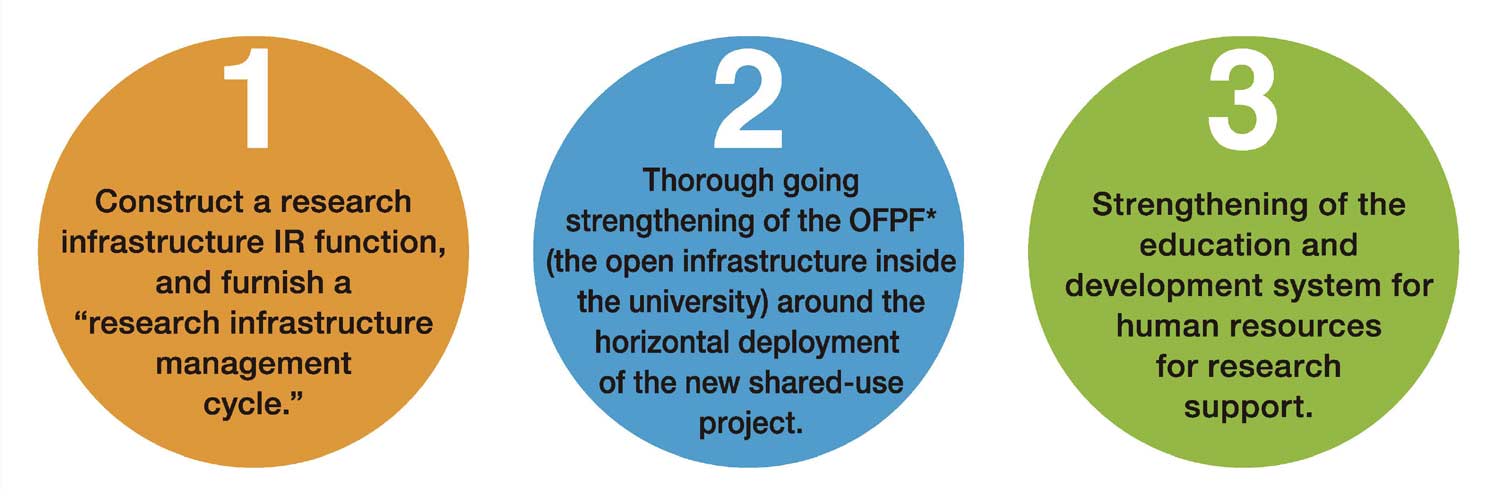Efforts and Issues to Date
Making the advanced research equipment open
- 2005: Start of equipment sharing 2015: Establishment of the Global Facility Center (GFC) 222 pieces of registered advanced equipment (16 departments, 120,000 hours/year) 6,000 cases of commissioned analysis with a total revenue of 43 million yen/year
- Opening of molding and machining technology (prototype solutions)
- Circulation of secondhand devices inside the university (equipment market)
- Department collaboration: Creation of the Open Facility Platform (OFPF)
- Enhancement of functionality of the six open units due to the Ministry of Education, Culture, Sports, Science and Technology’s “New Shared Use Project”
Issues
As a consequence of the growth on a university-wide scale, the stage for revising the respective roles of equipment managers, departments and university executive in sustained operation has been reached. The establishment of a system for the sustained collection and analysis of research infrastructure data is a necessity.
Education and training of human resources for research support
- 2006: The Office for Education and Research Support (2013: Office for Technical Support) was founded; 2018: Centralized management of technology and staff
- The technical staff of the entire university began serving jointly in the Office for Technical Support
- Skill sharing by grouping by specialty
- Operation of the university-wide support system beyond departments
- Support for the independent activities of technical staff
- 2020: Receipt of the “Outstanding Support for Research Award” in the Commendation for Science and Technology by the Minister of Education, Culture, Sports, Science and Technology
Issues
The furnishing of the organization is progressing steadily. The stage for accelerating substantive centralization has been reached. The strengthening of management functions and information sharing and transmission functions as well as the establishment of a financial infrastructure for activation of cross-departmental activities is essential.
▼
Five years from now, the Hokkaido University Core Facility aims to establish a system to promote the strengthening of the EBPM research infrastructure to support the sustainable generation of achievements and their return to society
* OFPF…Open Facility Platform
Implementing institutions: Hokkaido University and the Japan Agency for Marine-Earth Science and Technology
Cooperating institutions: High Energy Accelerator Research Association (KEK), National Institute of Informatics (NII), Hokkaido Sapporo Kaisei Secondary School

